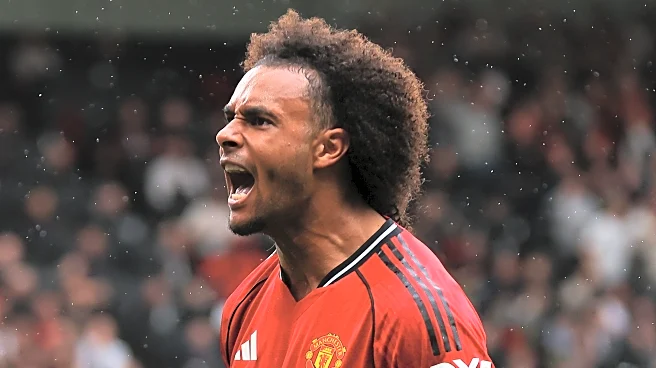Please don’t say we didn’t warn you: With journalists up and down the Italian peninsula and from every part of Great Britain flooding us daily with updates on Joshua Zirkzee’s possible transfer to Roma,
we’ve officially entered the Jadon Sancho zone—a place where every phone call, telling glance, subtle suggestion, and non-denial shifts the rumor mill into high gear.
Zirkzee, like Sancho before him, made a high-profile move to Manchester United and has struggled to meet expectations at Old Trafford. While the reasons for their respective struggles differ as much as the men themselves, the outcome is the same—two highly paid, immensely talented players wasting prime years of their careers on the bench, desperately hoping to find a suitable Plan B.
While Sancho turned down the chance to revive his career by indulging in some savory Gasperade, Zirkzee seems more eager to learn from one of the game’s greatest attacking minds, Gian Piero Gasperini. Earlier this week, we discussed the rumored terms of this deal—a six-month loan with a €30 to €35 million buyout—and now reports from Italy suggest that Zirkzee has given the all-clear to joining the Giallorossi.
According to sources in Italy, including Leggo and Corriere dello Sport, Zirkzee has agreed to join the Giallorossi in January, returning to Serie A, where he spent two seasons with Bologna. However, while United will reportedly respect Zirkzee’s wishes, the Red Devils must secure a replacement before allowing the 24-year-old Dutch attacker to leave for the Eternal City. While United striker Benjamin Šeško’s knee injury isn’t as severe as initially thought, the club still has to deal with Bryan Mbeumo and Amad Diallo’s impending departures for AFCON in January, which may also influence their decision to part with Zirkzee.
If nothing else, Roma and Zirkzee each see the benefit of this potential union. Now, it’s just a matter of cost and timing—but when has that ever stopped a transfer? (Gulp)If nothing else, Roma and Zirkzee each see the benefit of this potential union. Now, it’s just a matter of cost and timing—but when has that ever upended a transfer? (Gulp)









